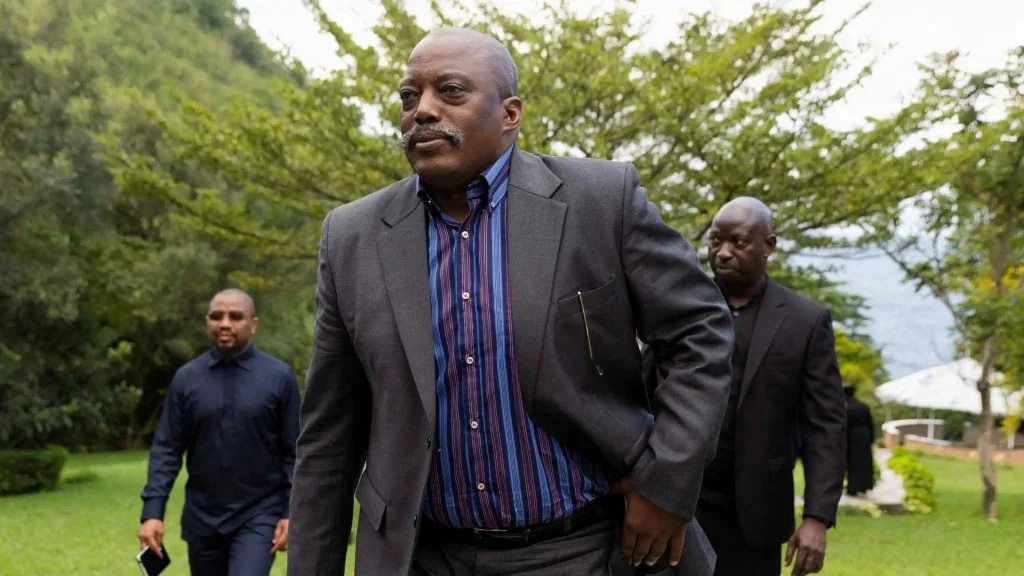A military court in the Democratic Republic of Congo (DRC) sentenced former president Joseph Kabila to death on October 1, 2025.
Judges found him guilty of treason, war crimes, sexual violence, torture, and supporting the M23 rebellion.
The ruling also requires Kabila to pay $33 billion in damages to the government and the Kivu provinces.
Accusations of Rebel Ties
President Félix Tshisekedi accused Kabila of directing the M23 movement, which controls parts of eastern Congo.
Prosecutors said the rebels established parallel governance and fueled violent campaigns. Kabila rejected all allegations.
Supporters Denounce the Verdict
Kabila’s allies condemned the judgment. Opposition figure Roger Mwinihire warned it could derail fragile peace talks. Ramazani Shadary dismissed the trial as a “political show” designed to silence rivals.
Civil Society Reactions
Activist Souzy Kisuki welcomed the conviction, blaming Kabila for mass killings in Beni. Yet she doubted enforcement, noting Congo’s weak judicial system.
“Authorities rarely follow through on such rulings,” she said.
Enforcement Unlikely
Analyst Bob Kabamba stressed that Congo seldom carries out death sentences. He argued the ruling serves more as political theater than real justice. Kabila’s whereabouts remain unknown, making his arrest unlikely.
Power Struggle at the Top
The case reflects escalating rivalry between Kabila and President Tshisekedi. Analysts warn the verdict may deepen divisions among Kabila’s supporters. However, widespread unrest seems unlikely because of his mixed legacy after 18 years in power.
Why It Matters
The sentence against Joseph Kabila threatens Congo’s fragile stability. With M23 still active in the east, the ruling risks worsening conflict and political division.






